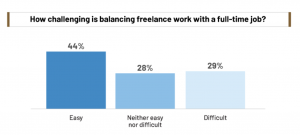 A nearly universal American high school experience is hearing a high school math teacher brag about the subject of math being far superior to English because, “math does not have exceptions like the English language; one plus one always equals two.”
A nearly universal American high school experience is hearing a high school math teacher brag about the subject of math being far superior to English because, “math does not have exceptions like the English language; one plus one always equals two.”
Higher level math teaches us that, in fact, one and one does not always equal two, and we can take advantage of this fact when calculating the benefits of entering into a strategic partnership where, in truth, one plus one can equal three. A strategic partnership is simply an alliance (legal or informal). Businesses often enter into strategic partnerships. Career professionals can also benefit from the mutual leverage gained in these partnerships.
Imagine you own a company specializing in unique shirts for canines. You partner with a company that creates customized hats for dogs. Several of your designs compliment those of your partner. Rather than creating hats, partner with the hat company and offer packages featuring both of your products. Negotiate a price so that your shared packages are offered at the same retail price on your websites and in your physical locations. Because you’re providing “one stop” options for clients, and offering them upsell opportunities with additional products, you may find that, when combining sales between your two brands, you sell considerably more than anticipated. Your combined influence may more than double your profits!
For a professional example, imagine that you work as a commercial real estate broker for a firm and blog about marketing in the industry to demonstrate your knowledge. You identify a commercial real estate attorney who also has a popular blog. Partnering with the attorney, across blogs, to create blog posts, videos, or even write a book would be a great way to extend each of your reach with potential clients.
How to Identify A Potential Strategic Partnership
Trust is imperative to a successful strategic partnership. Spend time building a relationship and rapport with a strategic partner. Remember that the primary goal of your partnership is to extend your company reach and/or personal brand. A good collaborative partner already has the ear/pocket of yoru target market. Both parties should experience benefits as a result of the partnership. Spend time brainstorming potential ways you can each benefit by collaborating and then create a document outlining goals and objectives. If applicable, create a contract with terms to protect each party.
(262)
Report Post





